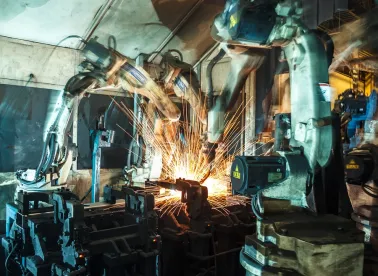The promise to renegotiate or else withdraw from NAFTA was one of the central points of the Trump campaign that helped him win states like Michigan, Ohio, and Pennsylvania. In keeping with his campaign promises, the Trump administration has since proposed to tighten automotive content rules and rules of origin(from 62.5% to 85%) to increase car production in the United States.
According to Scotiabank’s Global Auto Report, the push to renegotiate NAFTA could give rise to “significant uncertainty” across North America. Since the agreement came into force in 1994, NAFTA has resulted in an extremely complex and integrated web of auto supply chains. The expansion of assembly plants in Mexico, for example, accounts for a third of American auto part exports, an improvement over the less than 5% share prior to NAFTA’s inception. Any disruption in the free exchange of vehicles and auto parts could destroy the integration, stable pricing, and other comparative advantages that have enabled the North American auto sector to outperform other manufacturing industries and standout from the global auto market.
Automakers from all three jurisdictions are on the defensive over the potentially negative economic impact a more protectionist version of NAFTA could have, explains Peter Hall, the vice president and chief economist at Export Development Canada, adding “this new wave of ‘America-first’ thinking is not just troubling to Mexico. Canadian producers are worried that the ill feelings might also shift our way, forcing, or subtly coercing increased production stateside.”
For now, the major automakers are deploying a “wait-and-see” strategy on their next investment moves. Ford is still planning to invest $700 million into its Ontario operations, while General Motors Canada is implementing projects across its Ontario operations with a $554 million investment. And Fiat Chrysler still plans to inject $325 million into a new paint shop at its Brampton plant, and $6.4 million in Toronto operations.



 />i
/>i

